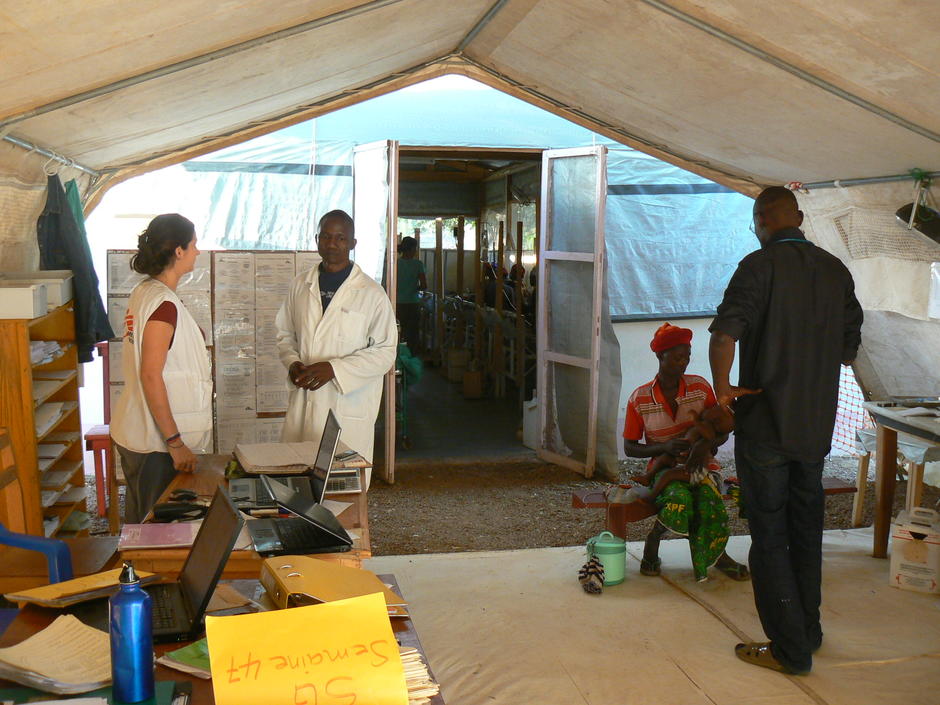
Humanitarian and Development
Place
Moissala, Chad
Sponsor
Clément Petit
Grant(s)
Foundation Grant: €50,000 to the Selection Committee at 2014/10/17
Grant for the research/innovation program: €100,000 to the Selection Committee at 2014/10/17
Project leader
Médecins Sans Frontières (MSF) is an international humanitarian medical nonprofit created in 1971 in Paris by doctors and journalists. MSF operates in exceptional (conflicts, epidemics, natural disasters) and very dangerous situations, in order to bring help to those whose life or health is threatened. The nonprofit delivers its assistance independently and impartially, and reserves the right to voice its opinion in public on situations where its teams happen to be witnesses.
A stronger partnership
The Veolia Foundation and MSF signed a partnership framework agreement in 2012. Their collaboration began in the fight to eradicate cholera in the Democratic Republic of Congo, with the rehabilitation and extension of the drinking water system of the town of Kalemie, in Katanga, and then the deployment and testing of an emergency water treatment plant (Aquaforce500) in the refugee camps in northern Uganda.
MSF, fully aware of the importance of the technical expertise available in the Veolia group, has asked the Foundation for support in research/innovation on issues connected with its activities in the field, in areas close to the core professions of the Veolia group: energy, waste disposal, sanitation, and emergency drinking water supply.
Thus, in the priority area of energy, the aim is to work on the energy optimization of MSF missions (to save money and also lessen the energy footprint of the projects) and on the possibilities of using renewable energies, particularly solar, on the field installations, to gain self-sufficiency.
An isolated mission that needs energy continuously
In southern Chad, in the Moissala region, MSF has been running a large project since 2010 on the prevention and management of malaria, particularly among children under five, for whom it is the principal cause of mortality in the district. MSF relies locally on the Public Health Ministry in its prevention (awareness-raising, preventive treatment) and management (consultations in health centers, hospitalization of severe cases) efforts. The NGO has a life base on the spot to accommodate five to ten expatriates and local personnel, which holds a large stock of equipment and medicines.
Due to its extreme isolation, modest size and geographic situation (strong insolation), this mission has been selected by MSF as the focus of a pilot project in solar photovoltaic power supply. The project will make the mission self-sufficient and secure its electric power supply.
Research/Innovation in the humanitarian area and a pilot experiment in solar electrification
The support of the Veolia Foundation for the Moissalase mission is reflected by a grant and by the supply of technical expertise by the foundation's volunteers, planned throughout the life of the project.

